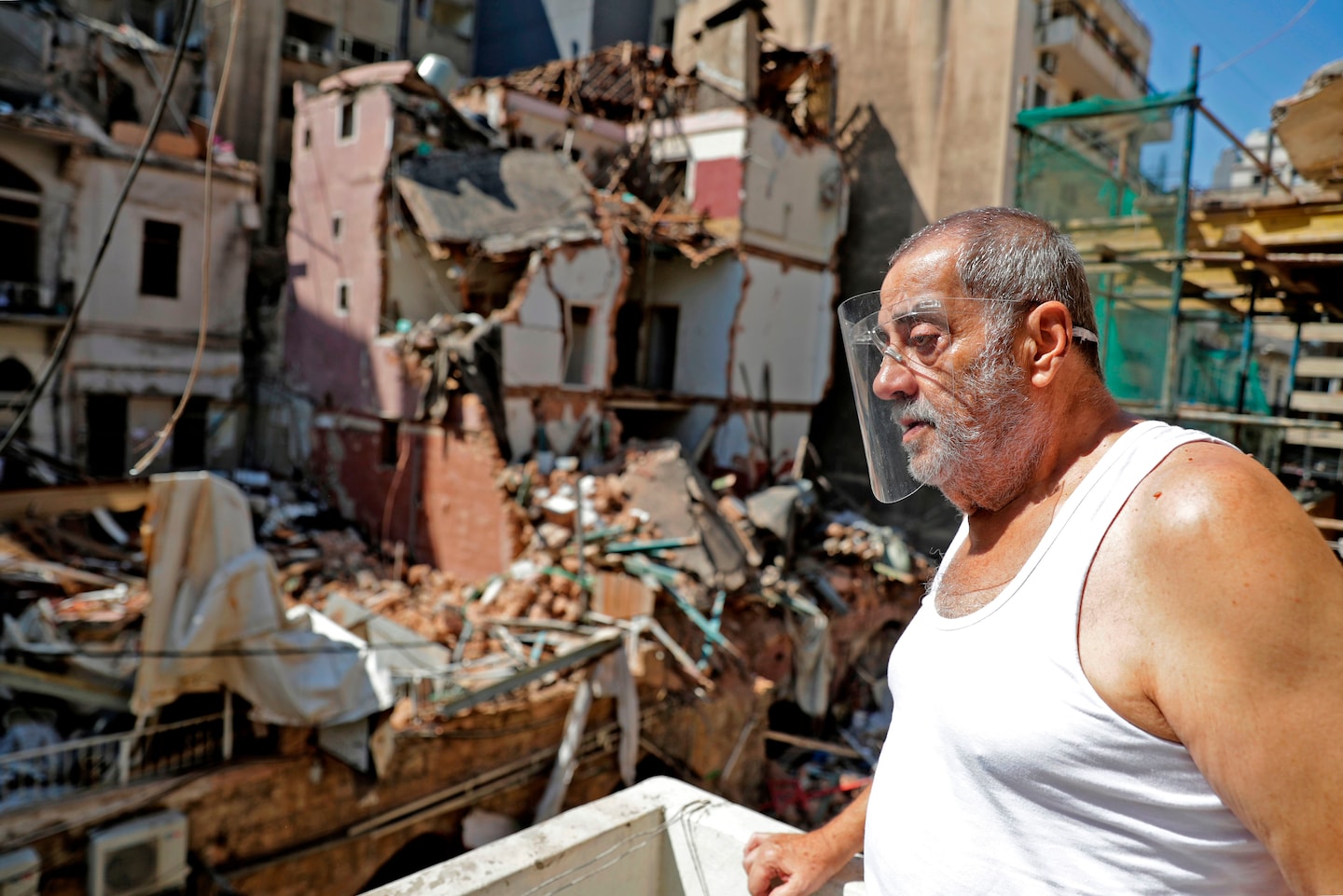Coronavirus surge in Lebanon compounds the misery in a battered country

The jump has been attributed in part to the mass panic that gripped Beirut in the aftermath of the blast, which wrecked three Beirut neighborhoods adjoining the port and inflicted damage and injuries for miles beyond. Tens of thousands of injured and traumatized people surged onto the streets without thought of wearing masks or social distancing.
For days after the explosion, dazed Beirutis abandoned all coronavirus precautions as they swarmed hospitals to seek treatment for their wounds or hunt for missing friends and relatives. Thousands descended on the stricken areas to help in the rescue and cleanup effort. A jump in coronavirus cases was widely predicted.
The estimated 300,000 made homeless took refuge with friends or relatives or moved into shelters, adding to the overcrowding. Three hospitals were destroyed, including one that had hosted a substantial number of Beirut’s coronavirus patients, further straining Lebanon’s capacity to care for an already rising number of cases.
But Lebanon may already have been heading for a coronavirus crisis even before the blast, health experts say. The country had won plaudits from the World Health Organization for containing the coronavirus in the earliest weeks of the pandemic, but numbers had already begun to rise.
“The blast is partially to blame, but it is not the blast alone. We clearly had an exponential rise before the blast,” said Firas Abiad, who manages Lebanon’s largest coronavirus facility, Rafik Hariri University Hospital.
On the morning of the explosion, he recalled, he tweeted about the risk that rising coronavirus numbers could soon overwhelm the country’s hospital-bed capacity.
The success of a nearly two-month lockdown caused many to relax their guard once the restrictions were lifted, he said.
Videos posted on social media showed Lebanese crowding onto beaches, into mountain resorts and into nightclubs. One depicted revelers openly mocking the threat posed by the virus by parading around a nightclub carrying a coffin.
Most significantly, travelers failed to follow — and the government failed to enforce — strict requirements at the airport for people arriving in the country. They include a mandatory coronavirus test on arrival, to be followed by a 48-hour quarantine until the results of the test are received.
There are multiple examples of people participating in weddings, funerals and parties and then receiving positive results, Abiad said.
Lebanon still lags behind many other countries in terms of the per capita number of infections, with about 1,700 cases per million people, compared with more than 17,000 in the United States, according to Lebanese government and Johns Hopkins University figures.
But the jump in recent days — from slightly more than 100 new infections a day a month ago to more than 600 a day since Thursday — suggests the virus may now be spinning out of control, infectious-disease experts say.
“The numbers are increasing very rapidly, and we are seeing signs of exponential growth,” said Ghina Mumtaz, an assistant professor of infectious diseases at the American University of Beirut. “When they start growing exponentially like this, they can get very high very quickly.”
Whether the latest partial and spottily imposed lockdown will work to curtail the spread is another question confronting Lebanon. The government has ordered most shops to close along with restaurants, cafes and bars. A strict 6 p.m.-to-6 a.m. curfew has shut down all nightlife in the capital.
But the restrictions are being loosely observed, mainly because even those Lebanese who have not been affected by the blast are already struggling to get by. The United Nations estimates that the poverty rate in Lebanon soared from 28 percent last year to 55 percent in May, three months before the blast. It is almost certainly higher now, U.N. officials say.
“We’re not as bad as some places in terms of numbers, except it’s hitting us here against a background of economic and financial collapse and the consequences of the blast,” said Souha Kanj, who heads the infectious-disease department at the American University hospital in Beirut. “In other countries having to deal with covid, it’s just that.”
“People are hurting financially and economically. Telling people you have to close your shops and businesses for two weeks is too much,” she said.






